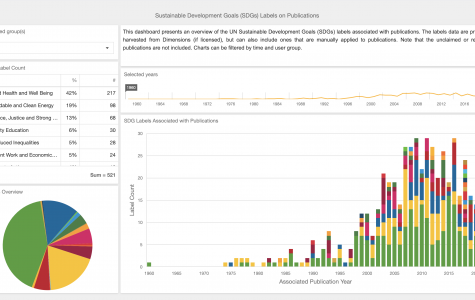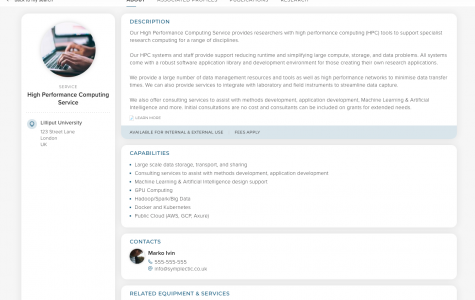
In our September release, we are very excited to announce a new suite of functionality to allow you to track and report on how your researchers are contributing towards the United Nations Sustainable Development Goals as we all work towards achieving a better and more sustainable future for all. We know a lot of you have been interested in using Elements to support tracking your contributions, and we share your passion – here at Digital Science we have recently set up a climate change working group to explore ways to make how we work more sustainable.
If you use one of our Repository Tools 2 integrations, you have more power than ever before to tailor the integration to your needs. The release offers several new configuration options including the ability to configure which publication types are permitted to be deposited to your repository, giving you a greater level of control over your open access workflows.

In the Discovery Module, we’ve continued our work introducing Equipment Profiles, adding new tabs to show related experts, publications and grants, helping you signpost researchers to people who have experience or expertise with these specialist tools, facilities or services as well as showcase the research findings and outputs that your equipment has made possible.
We have also continued to grow our new Research Funding Solution in this release, with major new functionality for post-award grants management. This will help support the management of active projects, letting you monitor deliverables and giving your researchers more transparency and access to key project data.
There are also many other improvements across Elements, many of which were inspired by feedback and feature requests from our community. Thank you all for your continued engagement!
North American clients are invited to join us for our virtual user meeting next week, where – as well as looking at the Elements roadmap for 2022 – we’ll be exploring Elements’ new privacy features, the new SDG tracking functionality, and hearing from Andrew Mckenna-Foster of Figshare on the benefits of the Elements/Figshare integration. We’re also very excited to hear from Steve Marois and Maura Monahan of Boston University, and Clarke Iakovakis and Megan Macken of Oklahoma State University about their use of Elements.